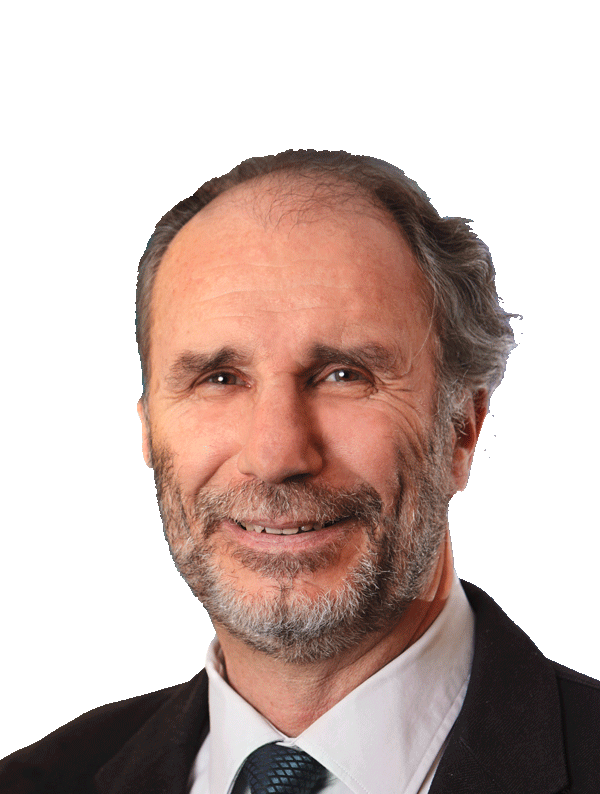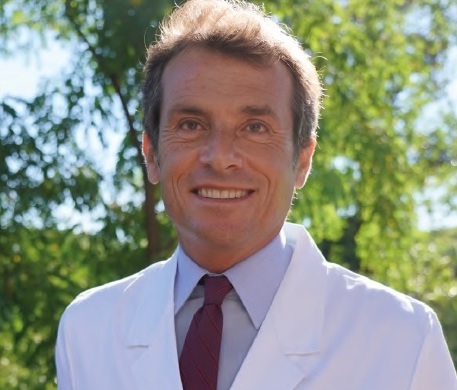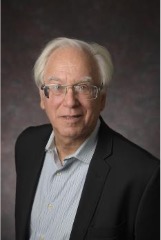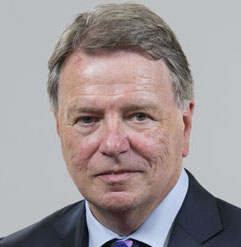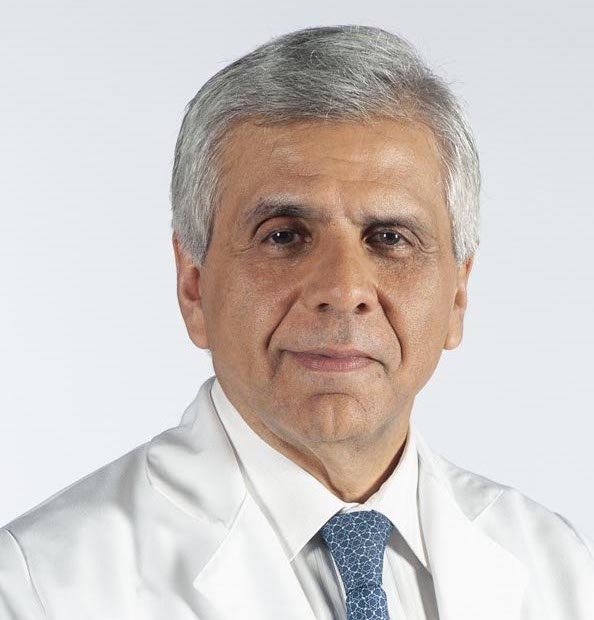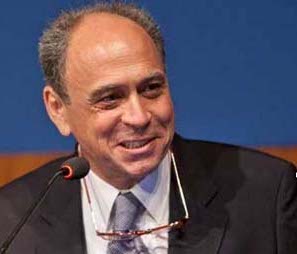Prof. Francisco Guarner is Consultant of Gastroenterology at the University Hospital Vall d’Hebron and Senior Researcher at the Digestive System Research Unit at the Vall d’Hebron Research Institute in Barcelona, Spain. Prof. Guarner also serves as a member of the ‘Guidelines & Publications Committee’ of the World Gastroenterology Organization (WGO), Chair of the Steering Committee of the International Human Microbiome Consortium and member of the Scientific Committee of Gut Microbiota for Health Section of the European Society of Neurogastroenterology & Motility.
- Chair/member of the 'Guidelines & Publications Commitee' of the World Gastroenterology Organization (WGO).
- Chair of the Steering Commitee of the International Human Microbiome Consortium.
- Member of the Scientific Committee of Gut Microbiota for Health Section of the European Society of Neurogastroenterology & Motility.
- Member of the Board of the Spanish Society for Microbiota, Probiotics and Prebiotics.
- About
- Key studies
- Events
Prof. Francisco Guarner is Consultant of Gastroenterology at the University Hospital Vall d’Hebron and Senior Researcher at the Digestive System Research Unit at the Vall d’Hebron Research Institute in Barcelona, Spain. Prof. Guarner also serves as a member of the ‘Guidelines & Publications Committee’ of the World Gastroenterology Organization (WGO), Chair of the Steering Committee of the International Human Microbiome Consortium and member of the Scientific Committee of Gut Microbiota for Health Section of the European Society of Neurogastroenterology & Motility.
- Chair/member of the 'Guidelines & Publications Commitee' of the World Gastroenterology Organization (WGO).
- Chair of the Steering Commitee of the International Human Microbiome Consortium.
- Member of the Scientific Committee of Gut Microbiota for Health Section of the European Society of Neurogastroenterology & Motility.
- Member of the Board of the Spanish Society for Microbiota, Probiotics and Prebiotics.
Graduating in medicine from Barcelona University in 1973, Prof. Guarner specialized in gastroenterology and hepatology at Clinic Hospital. He then earned a PhD from University of Navarra, Spain. Prof. Guarner obtained research fellowships to work at the Royal Free Hospital and King’s College Hospitals and at the Wellcome Research Laboratories (UK). Prof. Guarner’s main line of research since 1991 has been the role of intestinal microorganisms in chronic intestinal inflammation.
By playing a fundamental role in the induction and perpetuation of intestinal inflammation, some gut bacteria are deeply involved in human inflammatory bowel disease (IBD, such as ulcerative colitis and Crohn’s disease). Others, beneficial ones, mitigate intestinal inflammation, even suppressing the production and release of pro-inflammatory cytokines such as TNF and others. Studying these bacteria sparked his interest in gut microbiota and probiotics able to downregulate inflammation and the risk of cancer.
Willing to find new solutions for IBD, Guarner’s researches were directed toward the identification of therapeutic and nutritional resources. He experienced new intervention strategies (probiotics, prebiotics, fecal microbiota transplant) in several models including observational studies in patients to improve characteristics of intestinal microbiota. Thanks to these studies, Prof. Guarner and his team identified microorganisms with favourable and unfavourable properties associated with disease progression in patients with ulcerative colitis or Crohn’s disease. He also participated in various European studies (FUFOSE, PASSCLAIM, PROGID) on experimental and clinical work with probiotics and prebiotics which provided important information towards the formulation of new nutritional tools.
New technologies were required to study the role of intestinal microbiota in IBD during observational studies. This was achieved thanks to the new generation of equipment for high-throughput sequencing as well as bioinformatic tools with the power of analysing massive amounts of data such as the European MetaHIT project. Prof. Guarner joined this consortium that brought together experts in new technologies with clinicians envisioning the relevance of such analytical tools for medicine. This global project had a very high performance with several articles published in Nature. As a result, MetaHIT has contributed to identifying the main features of intestinal dysbiosis associated with inflammatory conditions. It also highlights the loss of microbial diversity characterized by defects in the production of butyrate and a raise in the abundance of proteobacteria, which are the most characteristic elements of human intestinal dysbiosis.
- World Gastroenterology Organization (https://www.worldgastroenterology.org/)
- International Human Microbiome Consortium (https://ihmc2021.com/#)
- Gut Microbiota for health (https://www.gutmicrobiotaforhealth.com/)
- European Society of Neurogastroenterology and Motility (https://www.esnm.eu/)
The impact of Saccharomyces boulardii CNCM I-745
in gastrointestinal immune responses1
« Our understanding of immunity has improved considerably during the last decades, due to the discovery and description of a set of specialized structure for the induction of cellular and humoral immunity: the mucosa-associated lymphoid tissues also called MALT. In humans, these structures are present in the upper respiratory tract (nose and pharynx) but the vast majority of them are housed in the gut which is the largest interface between the external environment and the internal milieu. »
01 . Guarner et al. Probiotics and prebiotics. World Gastroenterology Organisation Global Guidelines. February 2017. https://www.worldgastroenterology.org/guidelines/global-guidelines/probiotics-and-prebiotics/probiotics-and-prebiotics-english. Last accessed 13th December 2019
The impact of Saccharomyces boulardii CNCM I-745
in gastrointestinal immune responses1
« Our understanding of immunity has improved considerably during the last decades, due to the discovery and description of a set of specialized structure for the induction of cellular and humoral immunity: the mucosa-associated lymphoid tissues also called MALT. In humans, these structures are present in the upper respiratory tract (nose and pharynx) but the vast majority of them are housed in the gut which is the largest interface between the external environment and the internal milieu. »
01 . Guarner et al. Probiotics and prebiotics. World Gastroenterology Organisation Global Guidelines. February 2017. https://www.worldgastroenterology.org/guidelines/global-guidelines/probiotics-and-prebiotics/probiotics-and-prebiotics-english. Last accessed 13th December 2019
Àlvarez J. et al.
Gut microbes and health.
Gastroenterol Hepatol. 2021 Feb 27;S0210-5705
https://pubmed.ncbi.nlm.nih.gov/33652061/
Ramirez J. et al.
Antibiotics as Major Disruptors of Gut Microbiota.
Front Cell Infect Microbiol. 2020 Nov 24;10:572912
https://pubmed.ncbi.nlm.nih.gov/33330122/
Finkelstein B-J. et al.
Anxiety, distress, and pain in pediatric urodynamics
Neurourol Urodyn. 2020 Apr;39(4):1178-1184. doi: 10.1002/nau24339. Epub 2020 Mar 23.
https://pubmed.ncbi.nlm.nih.gov/32203630
Logan E-D. et al.
Social Robots for Hospitalized Children.
Pediatrics. 2019 Jul;144(1):e20181511. doi: 10.1542/peds.2018-1511.
https://pubmed.ncbi.nlm.nih.gov/31243158/
Huaman J-W. et al.
Effects of Prebiotics vs a Diet Low in FODMAPs in Patients With Functional Gut Disorders.
Gastroenterologue. 2018 Oct;155(4):1004-1007.
https://pubmed.ncbi.nlm.nih.gov/29964041/
Pascal V. et al.
A microbial signature for Crohn's disease.
Gut. 2017 May;66(5):813-822
https://pubmed.ncbi.nlm.nih.gov/28179361/
Hill C. et al.
Expert consensus document. The International Scientific Association for Probiotics and Prebiotics consensus statement on the scope and appropriate use of the term probiotic.
Nat Rev Gastroenterol Hepatol. 2014 Aug;11(8):506-14
https://pubmed.ncbi.nlm.nih.gov/24912386/
Prof. Francisco Guarner’s Microbiota Events

Beneficial effects of probiotics to avoid antibiotics side effects.

How the gut microbiome in particular can influence host health in the context of the COVID-19 pandemic.
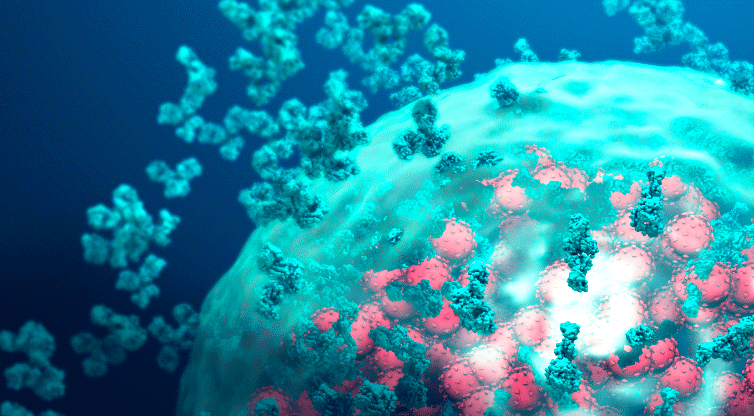
Gut microbiota, Gut epithelium, Gut mucosal immunity, could the Gut be considered as part of our immune system?
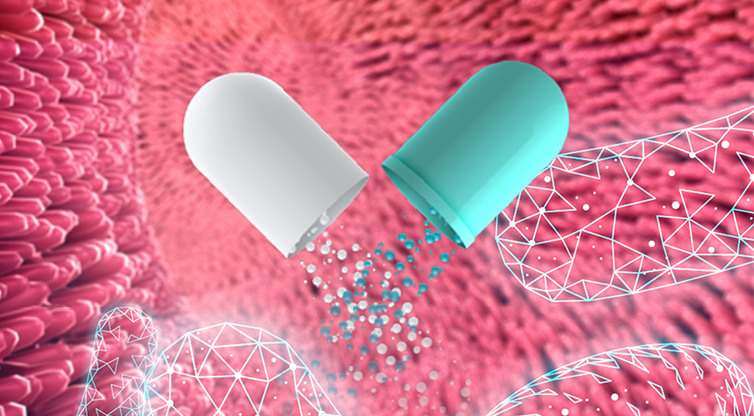
The bidirectional interactions between some commonly used drugs like antibiotics and the gut microbiome in industrialized countries.
